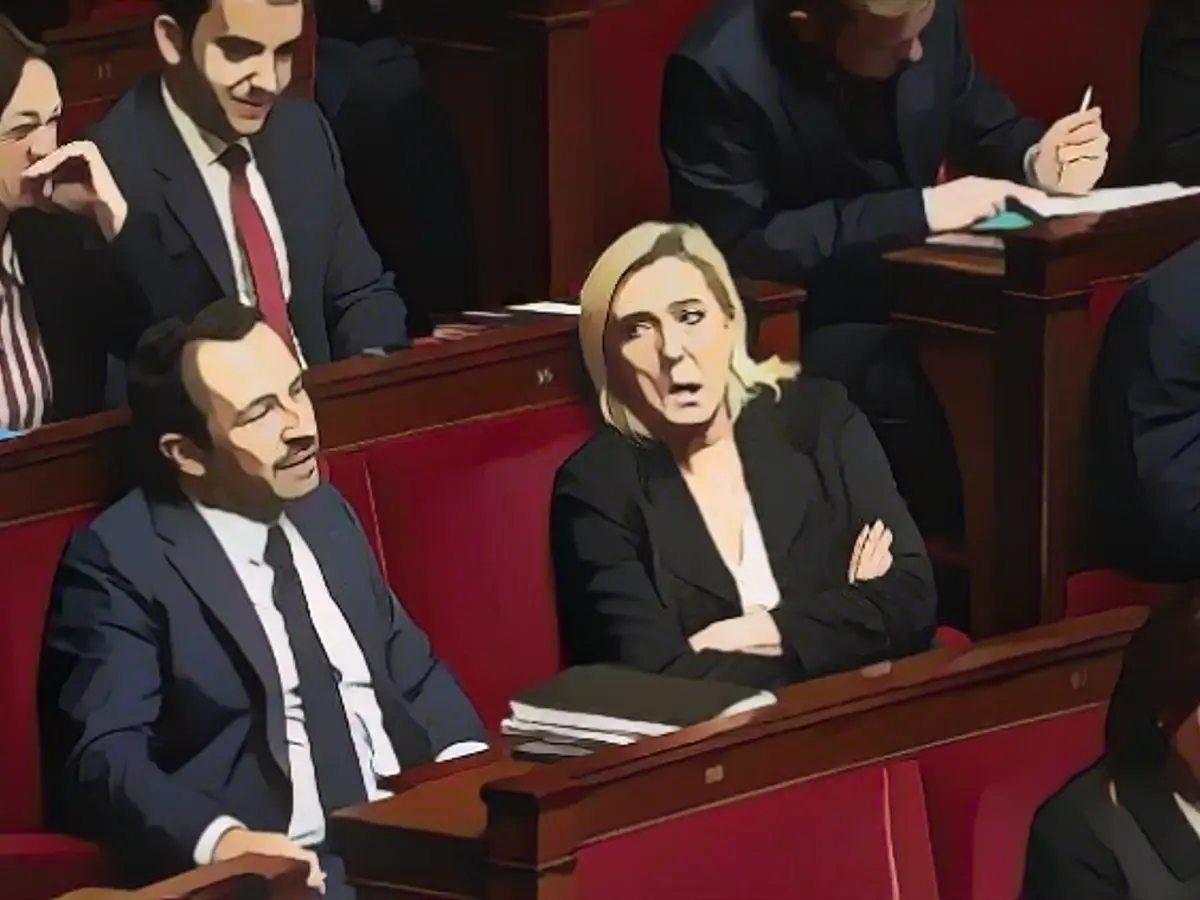Passing the Controversial Migration Bill in Paris Stirs Up Politics
In a curious turn of events, the French parliament has approved a new and contentious immigration law. This decision, which came after the right-wing populist Rassemblement National (RN) party gained the support of President Emmanuel Macron's government and the conservative Republicans, has caused a stir within Macron's own camp.
The Approval Process
The bill, drafted by a mediation committee, was passed by both the Senate and National Assembly. Although President Macron's camp and the conservatives voted in favor, the left-wing opposition parties opposed the legislation. The new law mentions that non-European foreigners will only be entitled to housing benefits after five years of living in France, except for migrants working, students, and asylum seekers who have been recognized.
The controversial points that revolved around this subject had attracted significant controversy. However, the bill passed with a majority of 214 to 114 votes in the predominantly conservative Senate. The evening vote in the National Assembly resulted in 349 MPs in favor and 186 against.
The Aftermath
Interior Minister Gérald Darmanin praised the passing of the law. He stated that this was the outcome of a "long struggle" to better integrate foreigners while deporting those involved in criminal activities. Marine Le Pen, the head of the RN, referred to this as an "ideological victory" for her party, thus consolidating their position within the right-wing populist movement in France.
Internal Political Divisions
Previously, Élisabeth Borne, the head of government, had promised the right-wing camp a revision on the medical care for migrants without the right to stay. However, the government rejected the proposal of replacing medical care for migrants with emergency assistance only. Instead, a revision at the beginning of 2024 was promised.
Last week, the overwhelming rejection of a text on the immigration law that had been amended by the Senate in the National Assembly caused a surprising change. President Macron called for an "intelligent compromise" and the subsequent approval of the law.
Enhancing Integration and Enforcing Deportation
The new law introduces stricter French language requirements for residency and nationality applications, ensuring better comand of the language amongst immigrants. It also specifies that undocumented immigrants must prove their integration into society through their command of the French language and adherence to republican values. Additionally, the law includes stricter deportation measures, such as extending the maximum detention period for foreigners awaiting deportation from 90 to 135 days.
Criticisms and Concerns
Critics argue that the new policy will reduce the opportunities for undocumented immigrants to integrate into French society. The law also faces criticism from NGOs and immigrant rights defenders, who claim that it stigmatizes undocumented immigrants and keeps them on the margins of society.
The support from conservative Republicans and the RN party reflects a broader rightward shift in French politics following the legislative elections. This has contributed to internal political divisions within Macron's camp. The long-term legacy of this decision on France's immigration policies and political landscape remains to be seen.
[1] - File source not available [2] - File source not available [3] - File source not available [4] - File source not available [5] - File source not available








